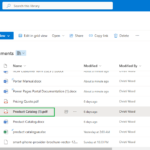Should you place a limit on how much commission your sales reps can earn? It’s a tricky subject that every sales organization must contend with. In this article, we’ll define uncapped commission and offer the key benefits of an uncapped commission strategy for modern sales organizations.
What you’ll learn:
Motivate your reps with automated inventive pay
Discover the power of automating commissions with Incentive Compensation Management, and easily create incentive programs that scale.


What is uncapped commission?
Uncapped commission means there is no limit to the amount of commission a sales rep can earn during any given pay period.
Capped vs uncapped commission
The difference is simple: Capped commission structures have a limit on potential commission earnings and uncapped commission structures do not.
The benefits of uncapped commission
As long as you’ve established an effective sales planning process – in other words, setting quotas and commission structures that incentivize the right behaviors and align with your sales targets – then uncapped commission will likely result in a positive ROI. But there are other key benefits:
Boosts motivation
An uncapped commission structure means your sales reps have a reason to continue building out pipeline and prospecting after they’ve met or exceeded their quota.
This becomes crystal clear when contrasted with capped commissions: When a sales rep performs so well that they reach a commission limit in a given pay period, it’s only natural for them to experience a dip in motivation – as one of their most important performance incentives is no longer in play.
Encourages good sales behavior
Naturally, sales reps whose commission is capped will frame their sales around this limitation. Once a rep hits their commission limit, they may push deals into the next pay period to ensure they maximize their commission payout rather than close them promptly and receive no commission. This isn’t a great experience for prospects.
Uncapped commission, on the other hand, doesn’t create hoops for reps to jump through. When reps continue to receive commission, regardless of the number of deals they close in a given pay period, they’re incentivized to prioritize effective selling tactics rather than pursuing loopholes.

Thanks, you’re subscribed!

Increases revenue
With no commission limit, reps are encouraged to go after more high-value deals; that means higher commissions and more company revenue.
Promotes trust in leadership
Capped commission structures risk creating an adversarial relationship between sales teams and leadership. Sales reps might understand a commission cap if it’s being implemented due to temporary financial struggles, but in the long term, top performers may not respond favorably to being told there’s a ceiling on their earning potential.
Protects against rep turnover
Sales turnover is a massive issue; the average turnover for sales professionals is estimated at 35% according to some sources. With uncapped commission, rep earning potential is wide open, motivating them to sell more, faster. If you cap commission, you run the risk of pushing talent to companies that don’t limit income.
When should companies avoid uncapped commission?
Although uncapped commission is common in modern sales organizations, there are several reasons why a company might choose to implement a commission cap. If a business is experiencing a period of financial instability or cutting costs, for instance, establishing consistent commission spending may become their top priority until they exit the rough patch.
A business may also implement a commission cap because they want to avoid overpaying sales reps for exceptionally large deals. While these large deals still generate more overall revenue for the company, leaders may be hesitant to pay a rep too much at once out of concern that they’ll negatively impact the rep’s motivation to continue selling.
Trending Articles

3 Ways Generative AI Will Help Marketers Connect With Customers
3 min read

Learn AI Skills on Trailhead
6 min read
Make uncapped commission work for you
Uncapped commission may seem to be the norm, but like many elements of sales compensation, it requires careful sales planning. When your compensation plans closely align with your organization’s sales goals, uncapped commission motivates sellers to earn more both for themselves and your business. If you choose to implement a commission cap, make sure you communicate its purpose and impact to all affected sales reps to ensure they stay motivated and engaged.
Attain quota faster and speed up sales ops
Learn how Sales Performance Management helps you connect customer data to sales planning and execution.












